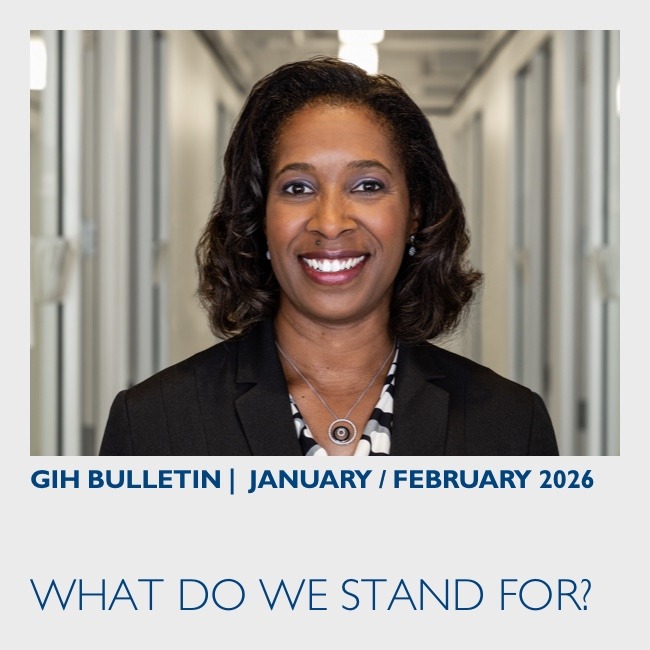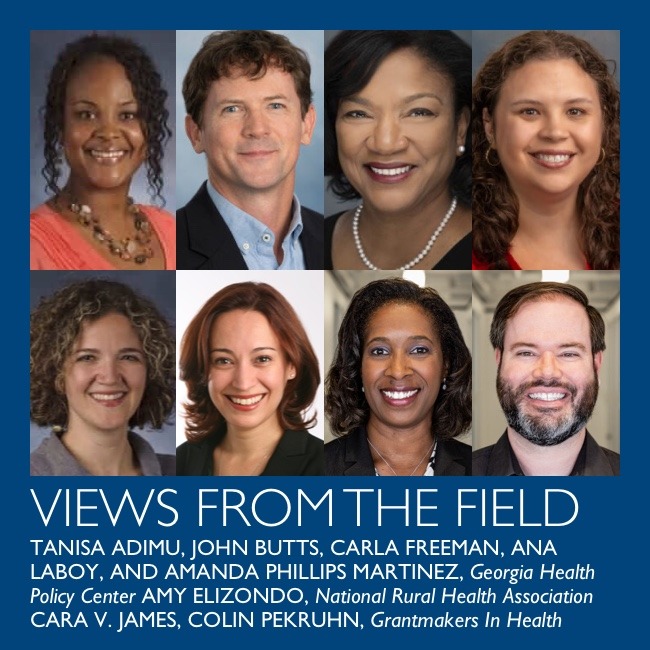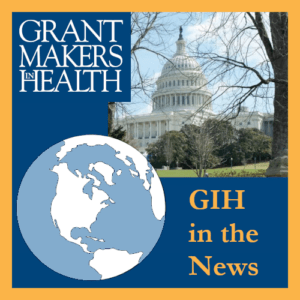Reimagining Rural Health and Well-being
To inform positive change, Grantmakers in Health (GIH) and the National Rural Health Association (NRHA) are partnering to reimagine a unified vision for health and well-being in rural America. The Georgia Health Policy Center (GHPC) was engaged to conduct a landscape analysis and facilitate listening sessions with rural health stakeholders at the local, state, and national levels.
GIH Health Policy Update Newsletter
An Exclusive Resource for Funding Partners
The Health Policy Update is a newsletter produced in collaboration with Leavitt Partnersi and Trust for America’s Health. Drawing on GIH’s policy priorities outlined in our policy agenda and our strategic objective of increasing our policy and advocacy presence, the Health Policy Update provides GIH Funding Partners with a range of federal health policy news.
Older Americans Act Renewal Approved by Senate
This an important and time-sensitive update on the Older Americans Act Reauthorization. The bill passed the Senate on Dec. 10th. It now needs to go through the House.
The National Council on Aging (NCOA) has an easy way for organizations who are legally able to lobby congress to reach out. Click here to complete a very brief form which will be automatically routed to your representatives. And please share with your networks!
Grantmakers In Health Welcomes Three New Members to Board of Directors
Grantmakers In Health (GIH) is pleased to announce the elections of Kenneth Jones, Senior Vice President, Chief Operating Officer, and Chief Equity Officer at the John D. and Catherine T. MacArthur Foundation; Susan Mims, President and CEO of the Dogwood Health Trust; and Hilda Polanco, Market Managing Principal at BDO to its Board of Directors.
Medicaid Managed Care Contracts are a Powerful Tool for Change; Philanthropy has a Role to Play
As a foundation, the mission of the United Methodist Health Ministry Fund is to improve the health of all Kansans. Our success, in large measure, depends on investments we make in advancing positive policy and systems changes that affect the state and communities. So, with large numbers of the state’s most vulnerable people relying on Medicaid for health coverage and care, we focus on leveraging the opportunities this program offers to sustain improved health outcomes and make progress on health equity.
Sustainability? No, It Is about Building Durability!
Philanthropy has forever espoused the term “sustainability.” We ask in grant applications and in our conversations with grant partners: “What’s your sustainability plan?” and “How do you plan to sustain your program once the grant ends?” Thanks to the influence of Tom Klaus, formerly of Tenacious Change, my thinking has shifted and evolved over the past few years to “durability.”








